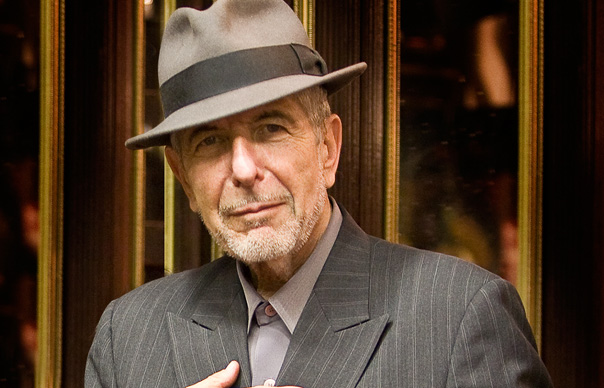Cohen was now at his commercial peak, and 1969’s Nashville-recorded follow-up, Songs From A Room, and 1971’s Songs Of Love And Hate were both Top Five albums in Britain. In between, he appeared at the 1970 Isle of Wight festival. It was an era in which anyone who warbled about “The unicorns of my mind” was hailed as a poet, but Cohen was the genuine article as songs such as “Bird On The Wire” and “Famous Blue Raincoat” continued to expand the songwriting envelope. Cohen was anxious to develop beyond the acoustic folk image, and for the first time he was credited as co-producer on 1974’s New Skin For The Old Ceremony.
“When I started producing myself, I had a lot of problems. You have to speak specifically to musicians and I didn’t have the technical language. I wanted to make it full and rhythmic, but I couldn’t get what I wanted, and that’s why I eventually turned to Phil Spector.”
https://www.youtube.com/watch?v=6fMnF0Fvdpo
Before that, however, Cohen decided to take one of his periodic “rests” from the music business and retired to his Greek island for a couple of years. He was by now the father of two children, but his personal life was in a mess by the time he returned. The combination of the volatile Spector and a half-crazy Cohen (‘‘I got into drugs and drinking and women and travel and feeling that I was part of a motorcycle gang or something,” he says) was bound to be explosive, and in 1977’s Death Of A Ladies Man, they produced one of rock’s true curios.
“I thought that Phil could bring my music into the place I wanted it to be, rock’n’rolI with a heavy rhythm. He invited me back to his house and locked the doors so I couldn’t leave. He had the air conditioning down to about 35 so it was freezing and I was really uncomfortable. I didn’t want to be in that place but l said, ‘Since you’ve locked us in here, Phil, Iet’s do some music,’ and we started writing that night. After that, he lightened up a lot and we spent two months writing the album.
“When other people were around, he produced this horrendous persona, like Ivan The Terrible. In the studio, you were slipping on bullets on the floor. He pulled a gun on the fiddle player [Bobby Bruce] because he didn’t like the way he was playing. He was a good ol’boy and he just put his fiddle away and walked out. It was a very disagreeable time.”
Cohen’s own low ebb did not help.
“I think my performance leaves a lot to be desired. I didn’t know where I was going and I was in as big a mess as Phil. My marriage was breaking up and I’d lost confidence in my work and in my capacity to write a song, otherwise I would not have written with Phil because I was never a great collaborator. Even if Phil had been different and encouraged me, which he didn’t, I don’t think I could have pulled it off.”
Was it true that Spector took the tapes home under armed guard every night?
“He used to confiscate them in case I did somthing on my own. I’d never come across this kind of megalomania. The record wasn’t finished, they were scratch vocals. Phil mixed it secretly and I never really had much to do with it. We’ve been able to laugh about it since.”
By the mid-Eighties, Cohen’s career was in the doldrums but the spiritual concerns, always present in his work, were coming to the fore.
“I found myself broke again and I knew I had to resurrect not just my career but myself and my confidence as a writer and singer. I became interested in how things really operate, the mechanics of feeling, how the heart manifests itself, what love is. I think people recognise that the spirit is a component of love, it’s not all desire, ‘I there’s something else. Love is there to help your loneliness, prayer is to end your sense of separation with the source of things.”
The full flowering of Cohen’s rehabilitation came with 1988’s I’m Your Man. It was his most successful work in an age, and on the back of it he played three nights at the Royal Albert Hall, took part in the Prince of Wales’ Trust rock gala with Peter Gabriel and Eric Clapton, and was the subject of a BBC television documentary.
“I had been pretty well wiped out in the marketplace but I was very happy with that album. I produced it myself and got the sound I wanted.”



